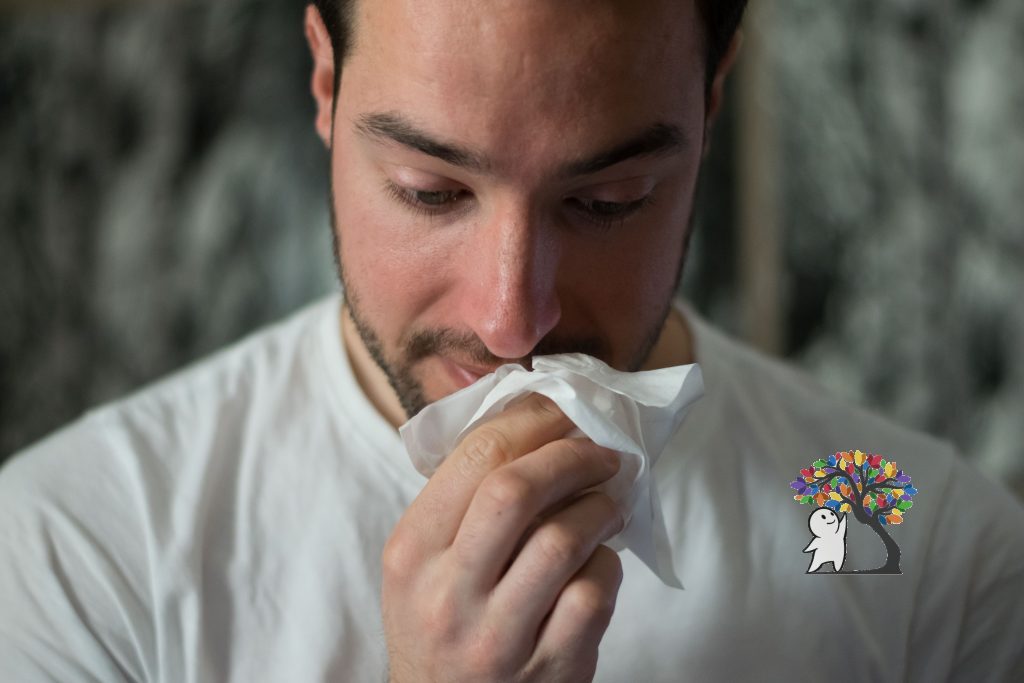Mold Allergy: Symptoms and Treatment

Mold does not only cause physical damages to your property but it can also affect your health and make you sick. One of the health conditions caused by mold growth is mold allergy. If you don’t know what it’s like or how to identify it, here are some facts on mold allergy, its common symptoms and how you can treat it.
What is a Mold Allergy?
When you inhale mold spores, your body tends to develop allergy-causing antibodies to fight these foreign invaders. Even after your exposure to mold spores, you will still produce antibodies, making your immune system react. Such a reaction prompts the release of histamine, a substance which causes itchiness, runny nose, sneezing, and watery eyes.
Molds are very common both inside and outside the house. While there are many types of mold, only certain types of mold can cause allergies. Some of these molds can be found on rotting plants while some are prevalent in areas of agriculture. There are also indoor molds that can not only cause a simple allergy but also severe asthma when left untreated. Some of the most common molds that are known to cause allergies are penicillium, cladosporium, aspergillus, fusarium, phoma, smuts, helminthosporum, aureobasidium and epicoccum. Yeasts are also a common type of mold that can be found in the air, especially in agricultural areas which can easily cause mold allergies.
What Are The Symptoms of a Mold Allergy?
Mold allergy causes the same symptoms that occur in other types of allergies including itching, runny nose, sneezing, watery and itchy eyes, coughing and dry, scaly skin. If you notice some of these mold allergy symptoms, make sure that it is not caused by other types of allergies.
Black Mold Allergy
Black molds can be dangerous as they release harmful toxins that can cause allergies, especially to people with a weak immune system. It is often found on humid areas such as bathrooms, laundry rooms and in any place where there are leaky pipes or flooding. Some of the common symptoms of black mold sickness include:
- Itchy eyes or skin
- Red eyes
- Sore or itchy throat
- Coughing
- Wheezing
- Runny nose
- Nosebleeds
If a person has asthma or respiratory allergy, the symptoms may get worse and new symptoms may occur such as allergic reactions, headaches, persistent coughing, fatigue, persistent coughing, frequent chest colds, difficulty in breathing and inflammation of the sinuses.
How Can I Prevent an Allergic Reaction to Mold?
Allergies can’t be cured completely but if you will avoid contact with the mold spores, you can reduce your allergy symptoms. To prevent your allergic reaction to mold, here are some things you can do:
- When molds are widespread outside, minimize your outdoor activities to reduce your chances of inhaling mold spores.
- When gardening or cleaning your backyard, wear a mask since some molds thrive in rotten plants.
- Use air movers to maintain indoor humidity.
- Use exhaust fans or open windows in the bathroom when having a shower
- If there are any plumbing leaks in your house, repair them immediately.
- Clean garbage bins regularly.
- Clean your bathroom sinks and tubs frequently.
- Use an exhaust fan in the kitchen when washing the dishes or cooking.
- Don’t let wet or damp clothes sit around your house
- Maintains good air circulation in your laundry room
- Repair roof leaks and clean roof gutters
What are the Treatments for Mold Allergy?
If you have the symptoms of mold allergy, don’t panic and immediately consult a doctor. You may undergo a physical examination to know if you have other medical problems that might have caused the allergy. Your doctor may recommend some tests such as blood test and skin prick test. These tests will help your doctor confirm if you really got the allergy from molds.
Apparently, the best treatment for mold allergy is to avoid contact or exposure that triggers your symptoms. You can also take some medications to reduce the symptoms such as antihistamines which can help with sneezing, itching and runny nose. You can also use nasal sprays to treat the inflammation or take montelukast, a tablet to prevent leukotrienes, chemicals in the immune system that are causing your symptoms like excess music.
By following your doctor’s prescription and recommendations, you will eventually feel better and reduce your allergy symptoms.



Responses